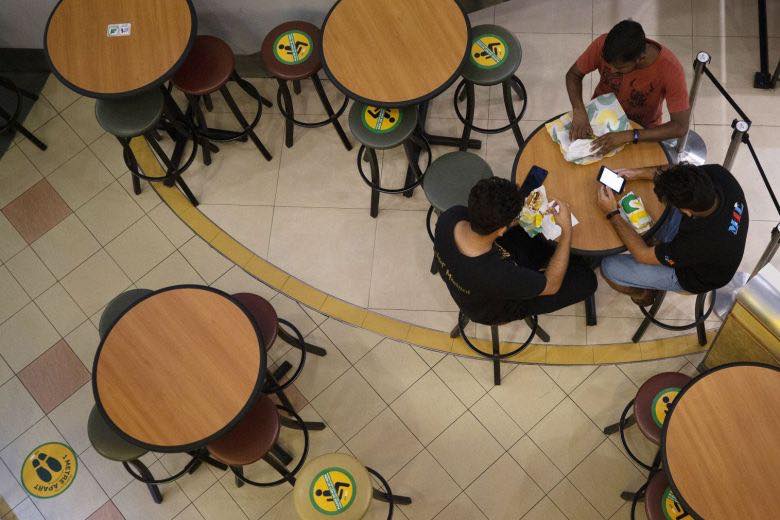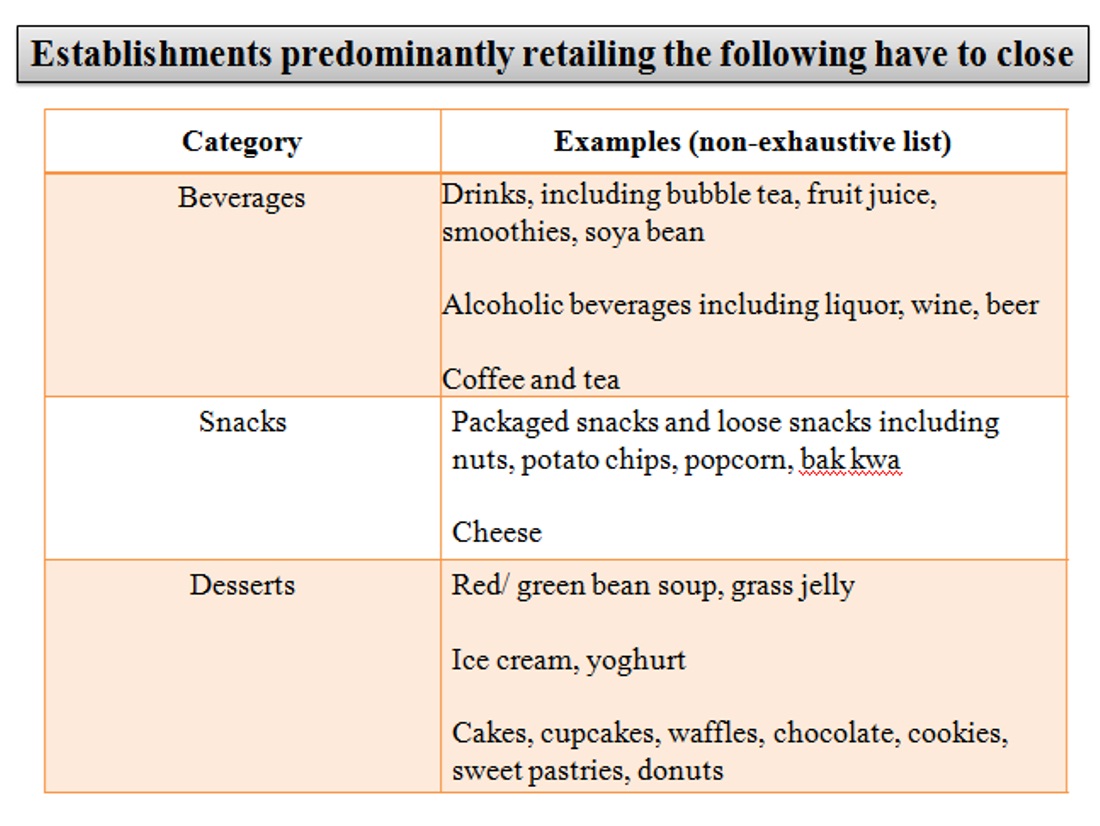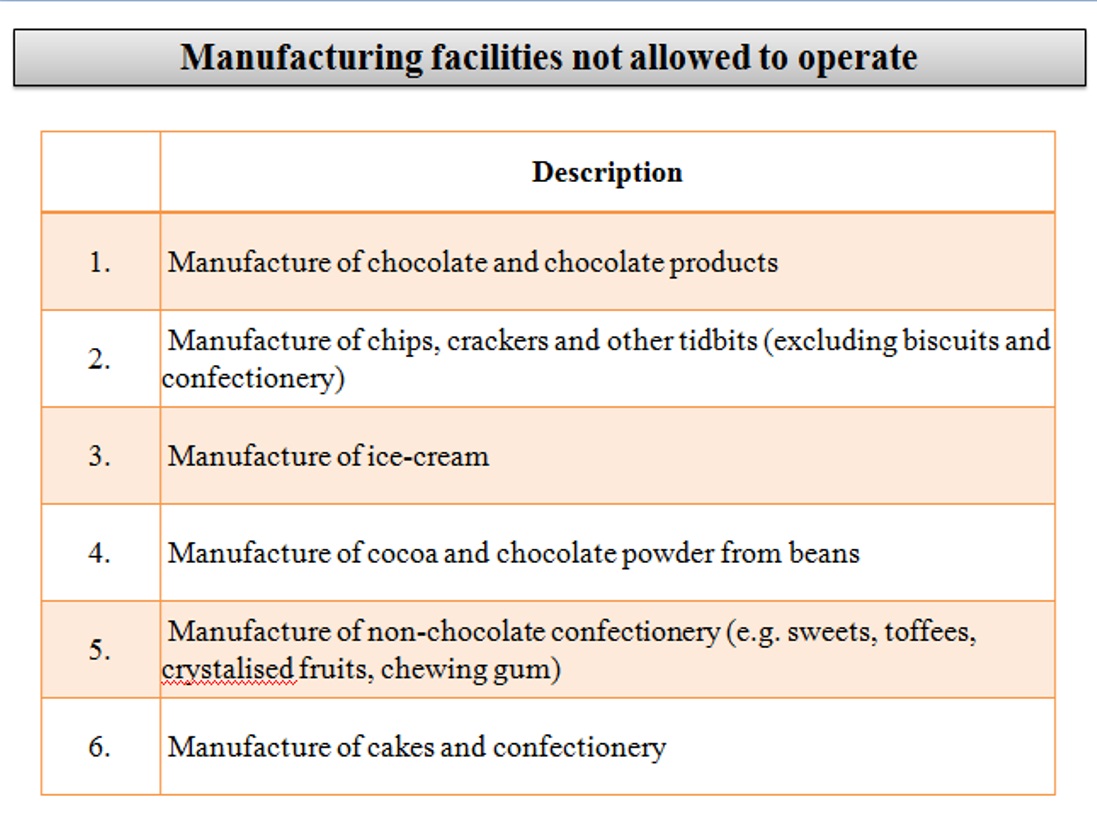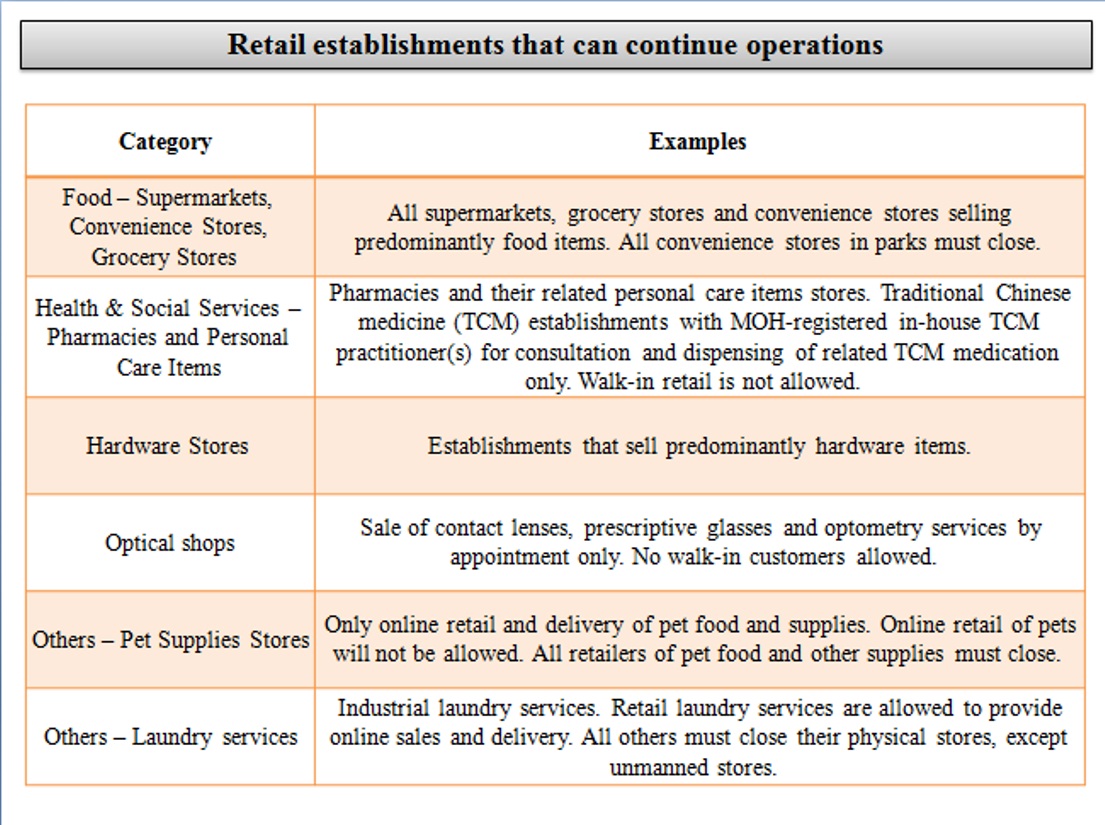With Prime Minister Lee Hsien Loong announcing an extension of the circuit breaker and the Multi-Ministry Taskforce announcing that fewer businesses will be permitted to operate, Singapore is making a major push to stop the spread of the novel coronavirus.
In keeping with this aim, the Ministry of Trade and Industry has released a tightened list of essential services that will be allowed to function in the island nation:
Food and Beverage Establishments
With effect from April 21, 2359 hrs standalone outlets (excluding those in hawker centres, food courts and coffee shops) that sell only beverages, packaged snacks, confectioneries or desserts will be required to close their outlets.
F&B outlets (including food vending machines) in parks will be suspended. Hawker centres located in parks can continue operations. Online retail of these products is allowed, only if they are fulfilled from the licensed central kitchen, manufacturing facility or warehouse of the F&B establishment
All other F&B establishments (including outlets that sell hot/cooked snacks or breads) are allowed to continue operations. These can operate for takeaway and/or delivery only during the Circuit Breaker period. Dining-in is not permitted.
Those that do not currently offer takeaway and/or delivery can start to do so. While patrons and delivery personnel are allowed to enter the premises of the F&B establishments for takeaway or delivery, they must leave the premises once they have picked up their orders.
Safe distancing measures to be followed by F&B establishments:
- Clearly demarcate queue lines and put up signage for patrons queuing to order food, and a waiting area for patrons and delivery personnel to pick up their food.
- Ensure that patrons and delivery personnel observe at least one metre spacing at all times and do not cluster together
- Implement pre-ordering and payment solutions where possible to minimise physical clustering of patrons waiting to place or pick up their orders
- Implement contactless pick-up of food where possible to minimise interactions.
- Ensure all staff, patrons and delivery personnel on their premises have their masks on
- Conduct temperature screening and health declaration by staff each time they report for work; ensure cleanliness and hygiene practices recommended under the SG Clean campaign; and comply with MOH health advisories
- Provide hand sanitisers to frontline staff who handle cash and other devices, and who are unable to wash their hands frequently with soap and water
- Place hand sanitisers in close proximity to high touch surfaces like door handles so that staff and patrons can sanitise their hands after touching these surfaces
- Frequently disinfect common spaces, and increase frequency of cleaning for high touch surfaces and interactive components within the establishment (e.g. smart kiosks)
- Service staff must provide clear communication on safe distancing measures to patrons.
- Put up simple signage to clearly communicate these practices to patrons.
The suspension includes operations of individual food carts selling such items. Only hawker centres, coffeeshops and food courts are excluded.
Retail Establishments
Only retail establishments engaged in essential services can remain open. All other retail establishments must remain close, and may only continue with online retail operations.
Retail establishments that do not provide essential services cannot open their stores to customers, but staff can access the retail premises when necessary to fulfil delivery of online orders.
Fulfilment of online orders must only be done through delivery (e.g. mailboxes, POPStations). No collection of order at the retail stores is allowed.
Retail establishments must limit the number of staff within its premises (e.g. warehouses, stores) to the minimum number required for order fulfilment. No other activities should take place within the premises. Staff must ensure safe distancing at all times.
All retail establishments allowed to remain open must ensure safe distancing, including floor markers to clearly demarcate queue lines for customers, at least one-metre spacing between customers, encourage the use of self-checkouts, cashless or contactless payment.
All malls, standalone stores and supermarkets should conduct temperature screening for customers at entrances, ensure all staff, customers and other personnel on their premises have their masks on at all times.
Supermarkets to provide dedicated shopping hours for vulnerable groups, use mall atriums or outdoor areas for temporary sale of goods to disperse crowds from their stores, remind customers to limit entry to 1 per family when shopping at their stores.
Under the COVID-19 (Temporary Measures) Act passed in Parliament on 7 April 2020, first-time offenders will face a fine of up to SGD 10,000, imprisonment of up to six months, or both.
Subsequent offences may face a fine of up to SGD 20,000, imprisonment of up to twelve months, or both.
Businesses that do not implement or comply with the government’s safe distancing advisories may also be ineligible for government grants, loans, tax rebates and other assistance.






